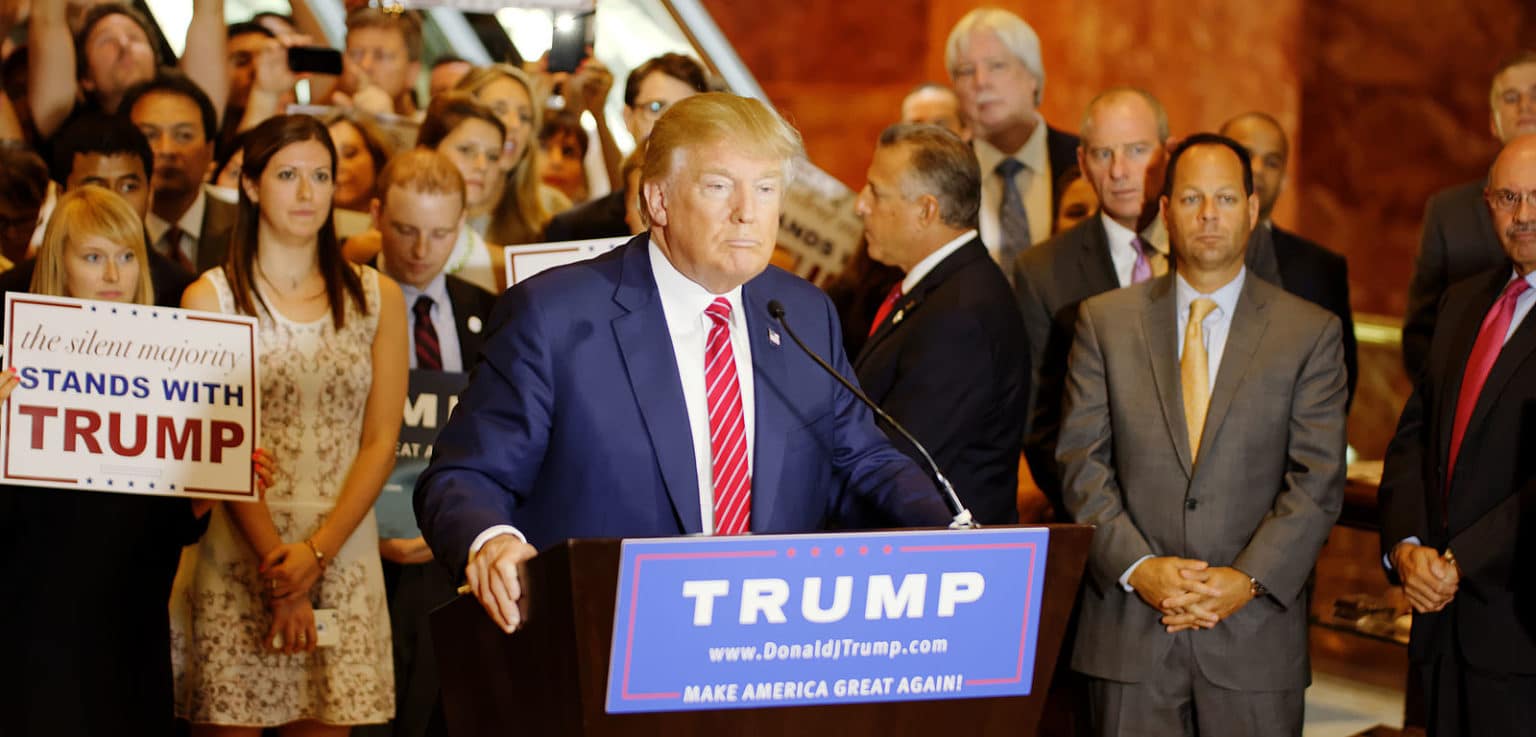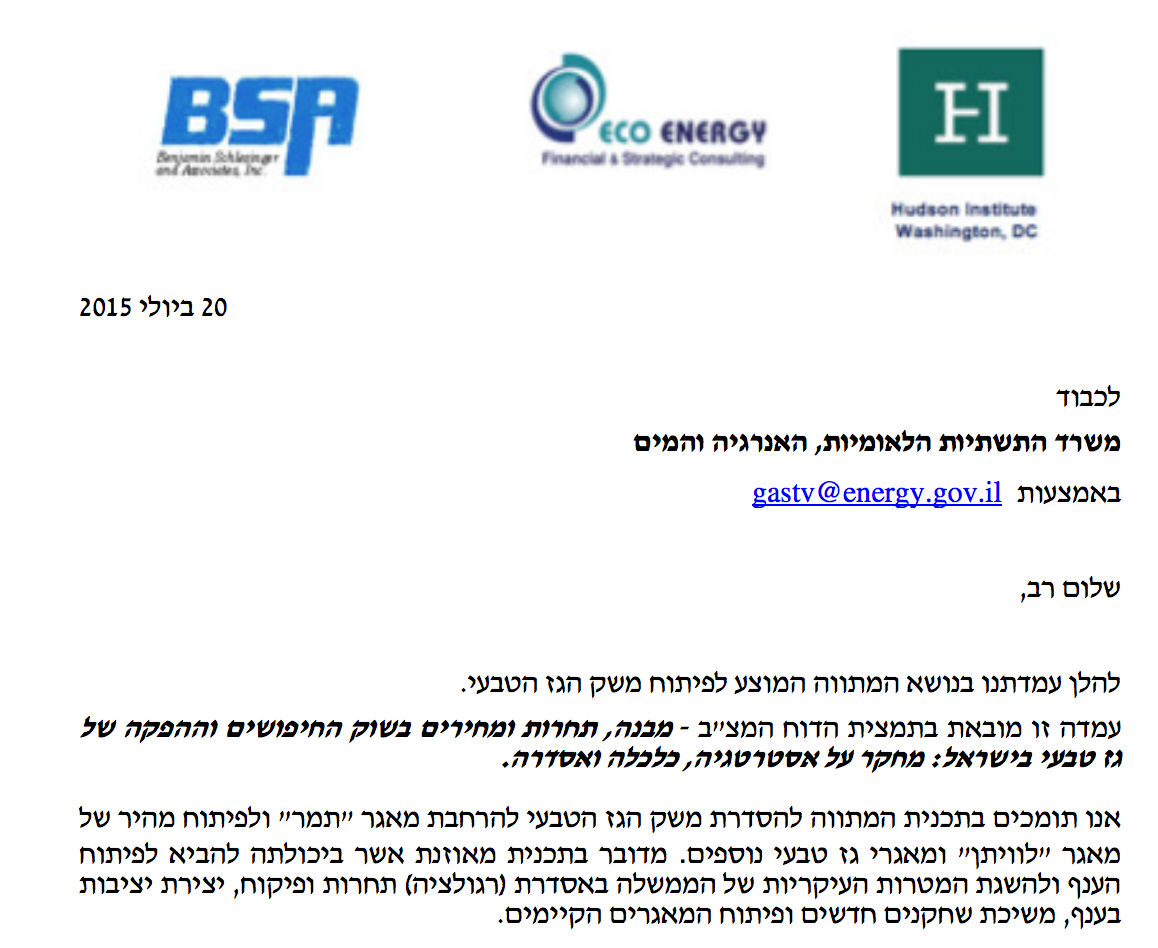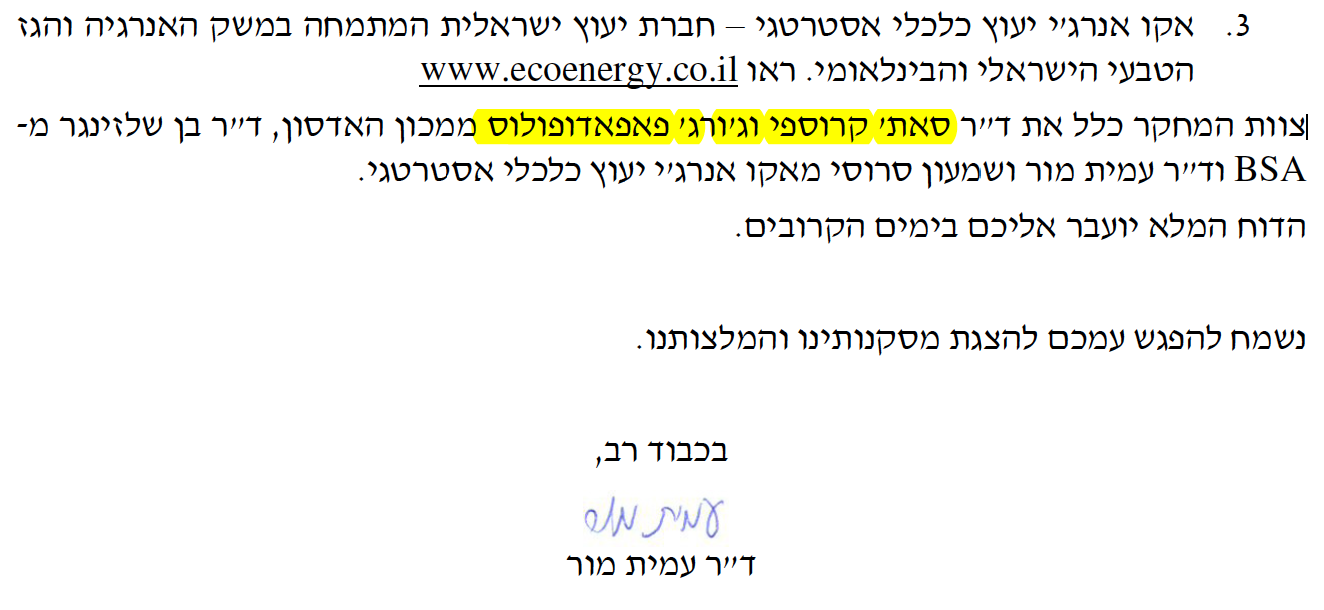When Republican Party presidential campaign front-runner Donald Trump named 2009 DePaul University graduate George Papadopoulos as a member of his foreign policy advisory team, some in the media raised eyebrows, while others jested that his wunderkind status makes him more likely to serve as office coffee fetcher than in a position of such prestige.
But you aren’t named to sit on such a team without serious connections, few of which the media made with regards to Papadopoulos, who has spent most of his professional career working as a research assistant at the Hudson Institute and now works as director of the Center for International Energy and Natural Resources Law & Security at the London Center of International Law Practice.
The story of who Papadopoulos is begins and ends with the Hudson Institute, a think-tank with a long history of climate change denial and anti-science advocacy.
A DeSmog investigation has revealed that the Hudson Institute, via industry funding its advocacy efforts, has proven instrumental in opening up Israel’s offshore natural gas reserves for drilling in the Mediterranean Sea for Noble Energy. Likewise, the efforts of Papadopoulos have helped pave the way for Noble to tap into the Mediterranean.
One may not realize the full extent of this, though, without some Hebrew language skills.
Hebrew Language Report
In summer 2015, Papadopoulos co-authored a six-page Hebrew language paper — stamped with Hudson’s logo and that of the brands of his collaborating co-authors — that was submitted to the Israeli Energy Ministry. The paper advocates for offshore gas drilling and calls for an industry-friendly financial scheme in the concessions process.
Image Credit: Israel Ministry of Foreign Affairs
According to the Israeli Energy Ministry Hebrew-language website, one of the paper’s co-authors presented it at an Israeli Energy Minister hearing.
Hudson Institute senior fellow Seth Cropsey — a signer of two letters written by the influential neoconservative Project for a New American Century that called for both the bombing and invasions of Kosovo in 1998 and Iraq in 2001 — co-authored the paper with Papadopoulos. The two of them co-wrote the paper with affiliates of both Israel’s Eco Energy and Bethesda, Maryland’s Benjamin Schlesinger and Associates.
Papadopoulos and Cropsey have also co-written other papers together, including a Hudson Institute report titled ”U.S. Policy and the Strategic Relationship of Greece, Cyprus and Israel: Power Shifts in the Eastern Mediterranean” and another titled, “Vice President Biden’s Trip to Cyprus: A Lost Opportunity?” The two published both papers just months before then-GOP presidential nominee Ben Carson, who has since endorsed Trump, announced that Papadopoulos would serve as a member of his foreign policy team.
The names of Cropsey and Papadopoulos are listed as authors in Hebrew in the report, highlighted here:
Image Credit: Israel Ministry of Foreign Affairs
Beyond co-authoring papers with Cropsey, Papadopoulos has also authored pro-offshore drilling op-eds on his own published by major Israeli newspapers such as Haaretz and Arutz Sheva. Papadopoulos told DeSmog that he does not have an English-language version of the report and did not respond to repeated requests for comment on the report sent by DeSmog.
Cropsey told DeSmog that Papadopoulos’s current views and positions do not represent those of Hudson, as he is no longer affiliated with the Institute. While not a Hebrew speaker himself, Cropsey also clarified that the report was translated into Hebrew after numerous back-and-forth email exchanges between himself and the report co-authors, and that he has deleted whatever English versions of the report he may have formerly had in his possession.
Months after they submitted the report to Israel’s Energy Ministry in December 2015, the Energy Ministry approved of favorable offshore drilling conditions for Noble Energy and Delek Group. One of Eco Energy’s clients, according to its website, is none other than Delek.
(Not So) Noble Connections
Hudson Institute, meanwhile, has a key link to Noble Energy: people and money.
In 2013, Hudson Institute gave then-Noble Energy CEO Charles D. Davidson its first ever Global Leadership Award for his company’s role in discovering and moving to drill offshore for gas in Israel.
“Davidson was honored today for his transformative successes in developing energy resources in the United States and Eastern Mediterranean, which have led to enhanced U.S. energy security and competitiveness and turned the Eastern Mediterranean into a burgeoning energy-producing region,” reads a December 2013 Hudson press release.
While the Davidson connection explains some things, as does the fact he has in the past funded Hudson Institute, also crucial is the fact that Noble Board member Jeffrey Berensen serves on Hudson’s Board of Trustees and as a top-tier funder according to the Institute’s 2015 Annual Report. Noble Board of Directors member Edward Cox, son-in-law of President Richard Nixon (his wife is the late president’s daughter), is also a Hudson donor.
According to financial disclosure forms released by Trump, he formerly had 17,800 shares of Noble Energy stock, valued at $1.12 million when he sold them in January 2014.
AIPAC at the Center
The American-Israel Public Affairs Committee (AIPAC), best known as the heart and soul of the Israel Lobby, also sits at the center of the story and not only because Trump announced his foreign policy team the day after he and Democratic Party presidential candidate Hillary Clinton gave major speeches pandering to AIPAC at its annual conference in Washington, DC. (For the first and only time during his presidential campaign, Trump gave his AIPAC speech aided by the use of a teleprompter.)
As with the Hudson Institute, you can’t talk about AIPAC without also talking about its Noble ties.
Bini Zomer, Noble Energy’s Israel Country Manager, formerly was a lobbyist for AIPAC after he began his political career working as a legal advisor to former U.S. Sen. Don Nickles (R-OK).
Nickles now also works as an oil and gas industry lobbyist for his firm Nickles Group. Noble Energy was founded and headquartered in Oklahoma before moving to Houston in 2000.
Zomer has spoken at several AIPAC meetings wearing his Noble hat, including one in 2014, in which he spoke of Noble’s energy prospects in the Holy Land.
“Noble, working with local Israeli companies, has discovered natural gas fields worth billions of dollars that could supply Israel’s needs for the next 150 years,” reads an introduction to that 2014 Zomer AIPAC speaking engagement. “[He] will discuss the find and the potential impact on Israel’s economy and security.”
Zomer and Papadopoulos both also recently spoke at the Noble-sponsored Israel Energy & Business Convention.
Noble and AIPAC have also worked together on offshore drilling lobbying, disclosure records reveal, with the former lobbying for H.R. 3683 and the latter lobbying for its cousin bill S. 1491.
Among other things, the legislation calls for creation of “a joint United States-Israel Center based in an area of the United States with the experience, knowledge, and expertise in offshore energy development to further dialogue and collaboration to develop energy efficiency, existing energy development programs, and more robust academic cooperation in energy innovation technology and engineering, water science, technology transfer, and analysis of geopolitical implications of new natural resource development and associated areas.”
Former U.S. Sen. Mary Landrieu (D-LA), who now works as a lobbyist for Noble Energy as reported here on DeSmog, served as the sponsor for S. 1491.
Supreme Court Hiatus
So though Trump has pledged not to be bought off by special interests due to his self-financed campaign, like most other U.S. politicians who want to hold office, he has a vested interest in not taking on the powerful Israel Lobby. The same apparently goes for taking on its partner-in-action, Noble Energy, both lobbies of which are embodied in the person of George Papadopoulos.
The Trump campaign did not respond to repeated requests for comment sent by DeSmog.
The Noble Energy offshore drilling victory, though, has been put on hiatus. The Israeli Supreme Court has ruled that the controversial stability clause signed between Noble and its corporate colleagues and the Israeli government was made, as the Court wrote, “in contradiction to the basic rules of administrative law in a way that prohibits restricting the considerations of the (Antitrust) Authority.”
Globes, The Wall Street Journal equivalent in Israel, described the state of play as far as Noble is concerned in stark terms.
“Israel’s High Court of Justice has shaken up the entire economy and energy sector by ruling against the natural gas outline agreement and instructing the Knesset to discuss the law again because of the stability clause,” they wrote.
“The stability clause is the most controversial section of the agreement, under which the state promises to make no substantial regulatory changes in the gas industry in the next 10 years, in particular in taxation, exports and ownership of the fields.”
Israel’s parliament now has a year to amend the terms of the contract in negotiations with Noble and other collaborating companies, or the deal is off the table. Cropsey told DeSmog that he thought the ruling was an “unfortunate decision” and that Hudson may, but has yet to, weigh in on the ruling as an institution.
Noble and Delek, Globes reported, has already held meetings with Israel Energy Minister Steinitz in the aftermath of the ruling. Zomer, the former AIPAC lobbyist, attended the meeting on behalf of Noble.
With additional reporting by Itai Vardi.
Image Credit: Wikimedia Commons
Subscribe to our newsletter
Stay up to date with DeSmog news and alerts








